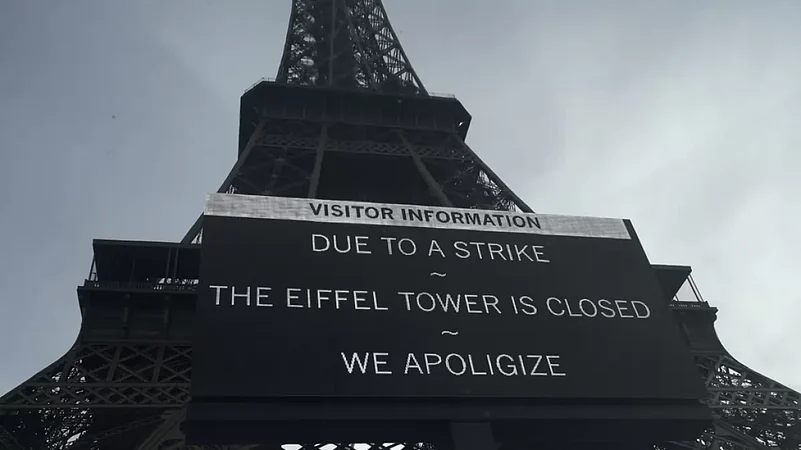The Eiffel Tower closed its doors to visitors on Wednesday due to a strike staged by workers in protest of contract negotiations. This unexpected closure coincided with the 100th anniversary of Gustave Eiffel's death, the creator of the iconic structure. Despite being a renowned global landmark and a staple of Parisian tourism, the Eiffel Tower occasionally experiences closures due to strikes, with this recent incident being particularly notable.
The closure disrupted the plans of many visitors, forcing some to rearrange their itineraries or capture moments from the glass-enclosed esplanade beneath the tower. Stephane Dieu, representing the CGT union, indicated that the closure was slated to conclude on Thursday.
The strike was strategically announced ahead of upcoming contract negotiations with the city of Paris, the owner of the 134-year-old monument, according to a spokesperson from SETE, the company managing the tower. Concerns about the monument's long-term prospects, exacerbated by the financial challenges stemming from the COVID-19 pandemic, were cited by unions representing the tower's 400 workers.
Dieu highlighted the financial strain on the Eiffel Tower, emphasizing the impact of a year of revenue loss due to the pandemic and the substantial debts incurred. The aging infrastructure of the tower, over 130 years old, coupled with the need for extensive renovation work in the coming years, added urgency to the workers' concerns.
The symbolic nature of the strike, chosen to coincide with the anniversary of Gustave Eiffel's death, underscored the workers' commitment to preserving the legacy of the iconic structure. While the closure disappointed tourists, it served as a reminder of the challenges faced by one of the world's most famous landmarks.
For the Fontaine family and others, this unexpected closure disrupted their plans, with a mother expressing disappointment at the timing, particularly during their first visit to Paris with children. The closure, affecting an average of 20,000 visitors per day, highlighted the significance of the Eiffel Tower in the tourism landscape of Paris.
Despite the closure, a prerecorded music show commemorating Gustave Eiffel's death on December 27, 1923, was still scheduled to be broadcast on social networks and French television, adding a touch of remembrance to the unexpected turn of events.



























